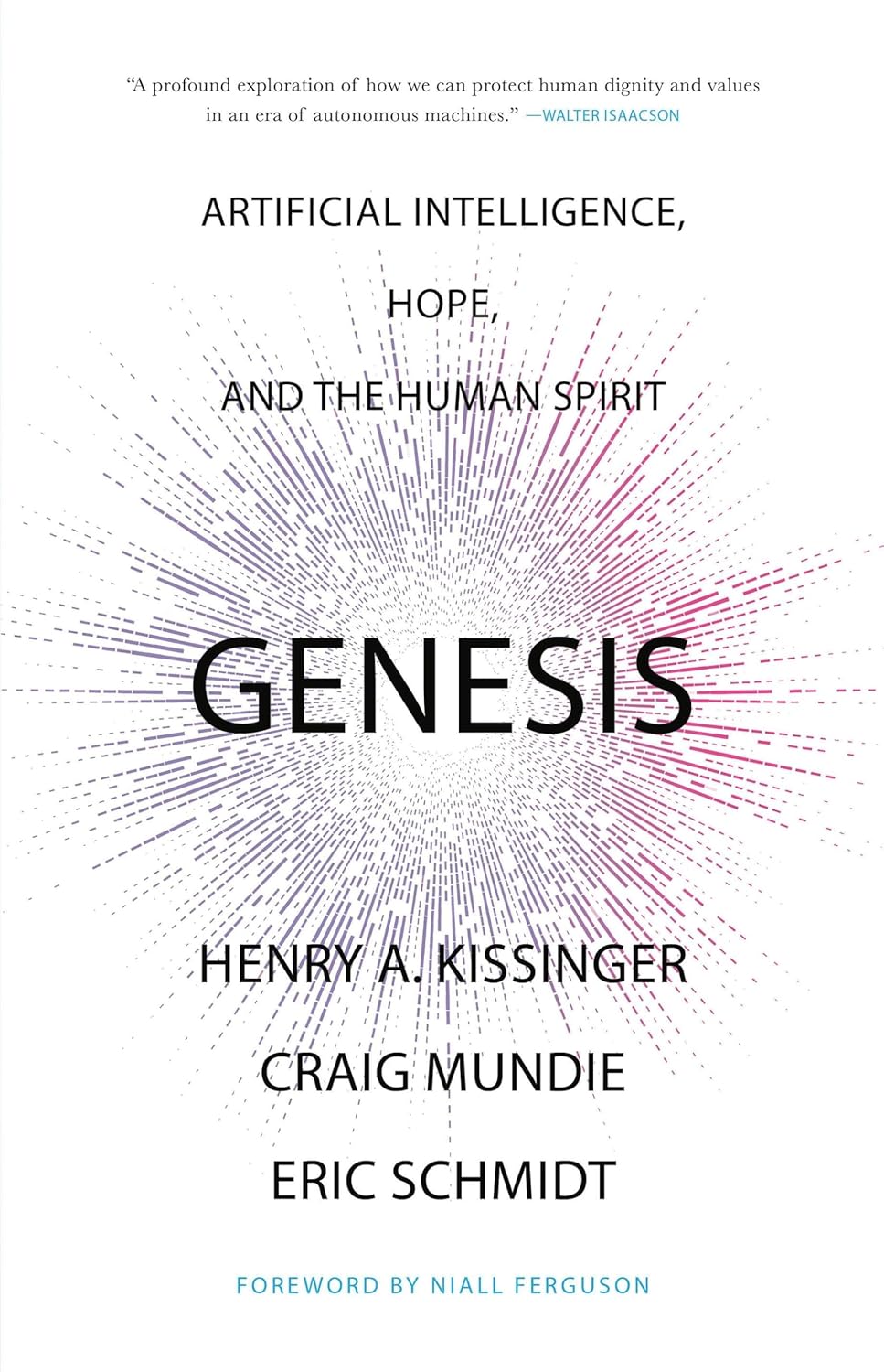Little Brown and Company
Genesis
Genesis
Couldn't load pickup availability
NEW YORK TIMES BESTSELLER | USA TODAY BESTSELLER | LOS ANGELES TIMES BESTSELLER | J.P. MORGAN NEXTLIST SELECTION
In his final book, the late Henry Kissinger joins forces with two leading technologists to mount “a profound exploration” (Walter Isaacson) of the epochal challenges and opportunities presented by the revolution in Artificial Intelligence: a breakthrough that dramatically empowers people in all walks of life while also raising urgent questions about the future of humanity.
As it absorbs data, gains agency, and intermediates between humans and reality, AI (Artificial Intelligence) will help us to address enormous crises, from climate change to geopolitical conflicts to income inequality.
It could solve some of the greatest mysteries of our universe and elevate the human spirit to unimaginable heights. But it will also pose challenges on a scale and of an intensity that we have never seen—usurping our power of independent judgment and action, testing our relationship with the divine, and perhaps even spurring a new phase in human evolution.
The last book of elder statesman Henry Kissinger, written with technologists Craig Mundie and Eric Schmidt, Genesis charts a course between blind faith and unjustified fear as it outlines an effective strategy for navigating the age of AI.
Eric Schmidt is a technologist, entrepreneur, and philanthropist. Joining the founders of Google in 2001, he helped grow the company from a Silicon Valley startup to a global leader in technology, first as chief executive officer and chairman, and later as executive chairman and technical adviser. In 2021, he founded the Special Competitive Studies Project, a nonprofit initiative to strengthen America’s long-term competitiveness in AI and technology. Most recently, he and his wife Wendy co‑founded Schmidt Sciences, a nonprofit organization working to advance science and technology that deepens human understanding of the natural world and develops solutions to global issues.
Craig J. Mundie, president of Mundie & Associates, joined Microsoft in 1992 and retired in 2014 as chief research and strategy officer. He advises Microsoft on quantum computing and cybersecurity, is a director of the Institute for Systems Biology, a technology advisor to the Cleveland Clinic, and also an investor/advisor in early-stage companies involved in AI, biotech, fusion energy, and materials science. He served Presidents Clinton, Bush, and Obama on the National Security Telecommunications Advisory Council and the President’s Council of Advisors on Science and Technology. Among his honors is a Doctor of Engineering degree from Rensselaer Polytechnic Institute.
Share


